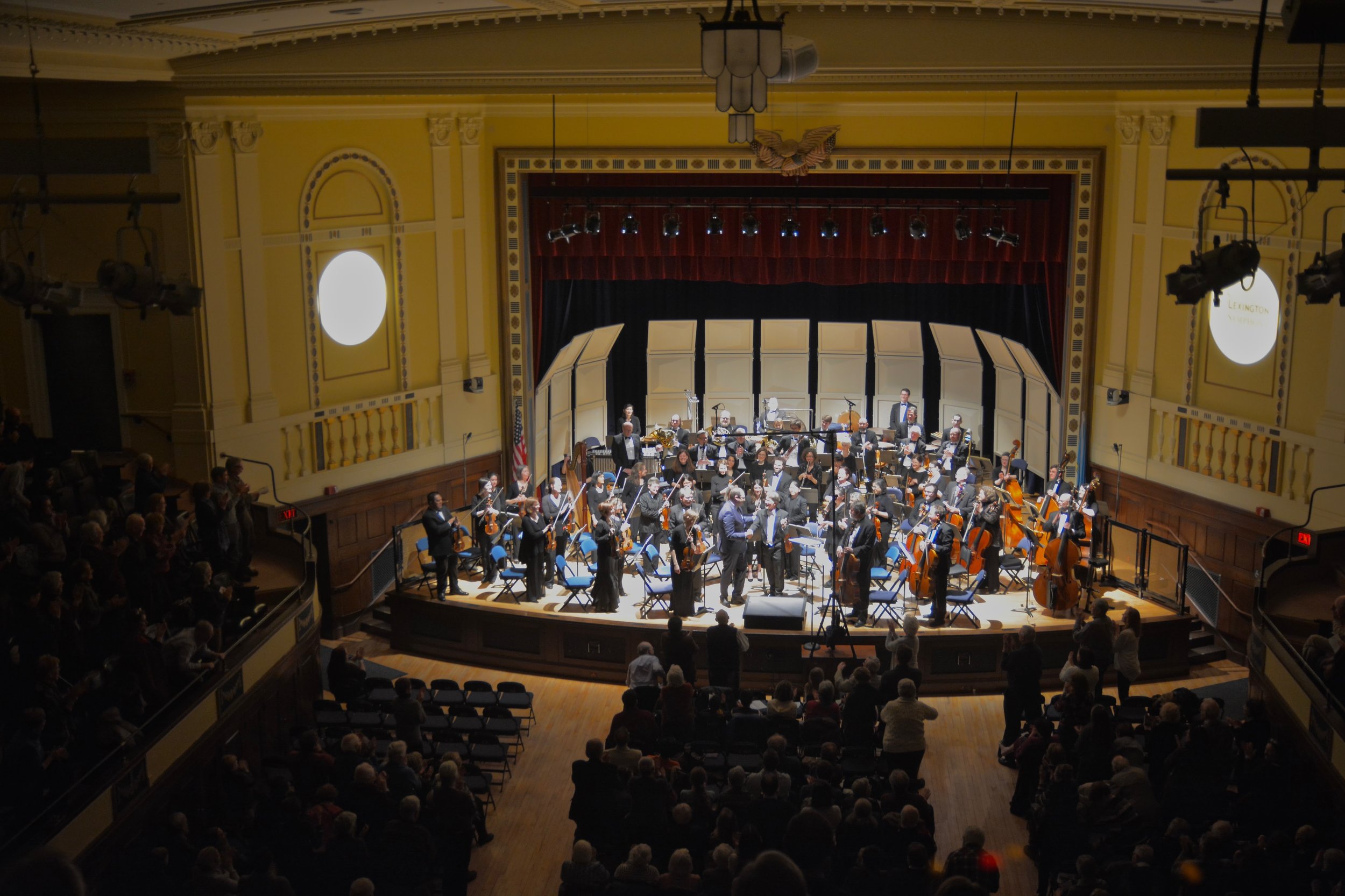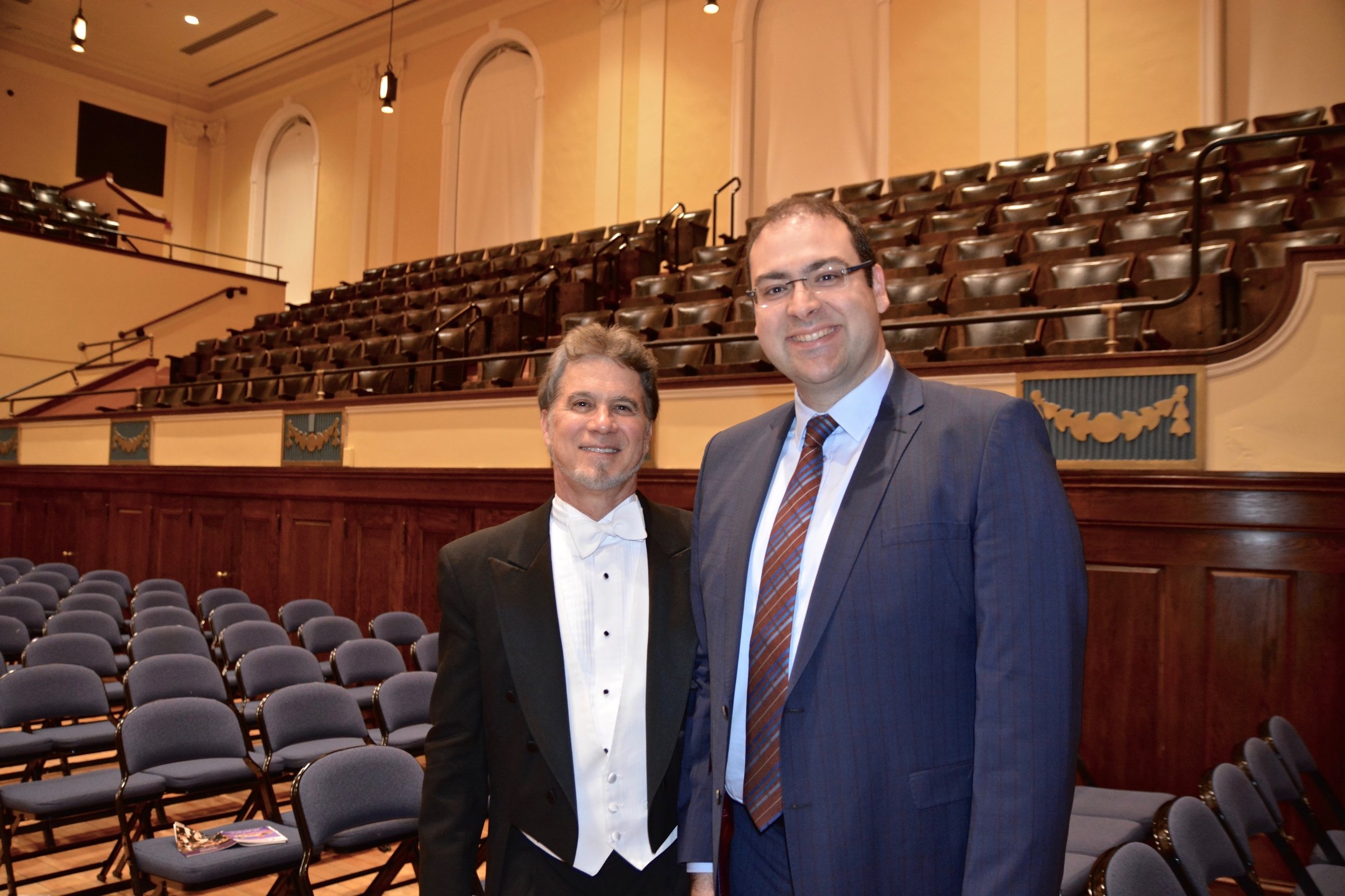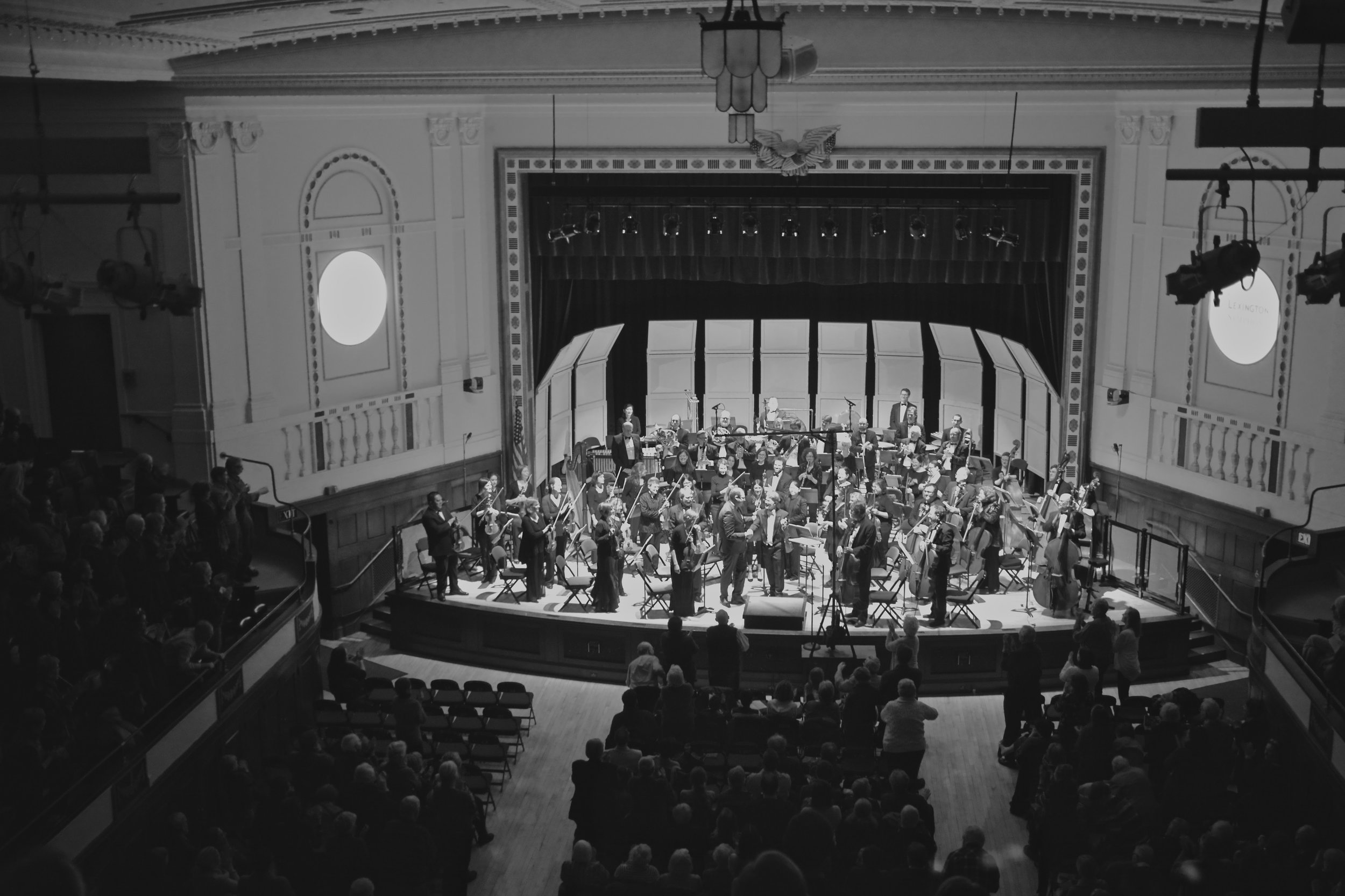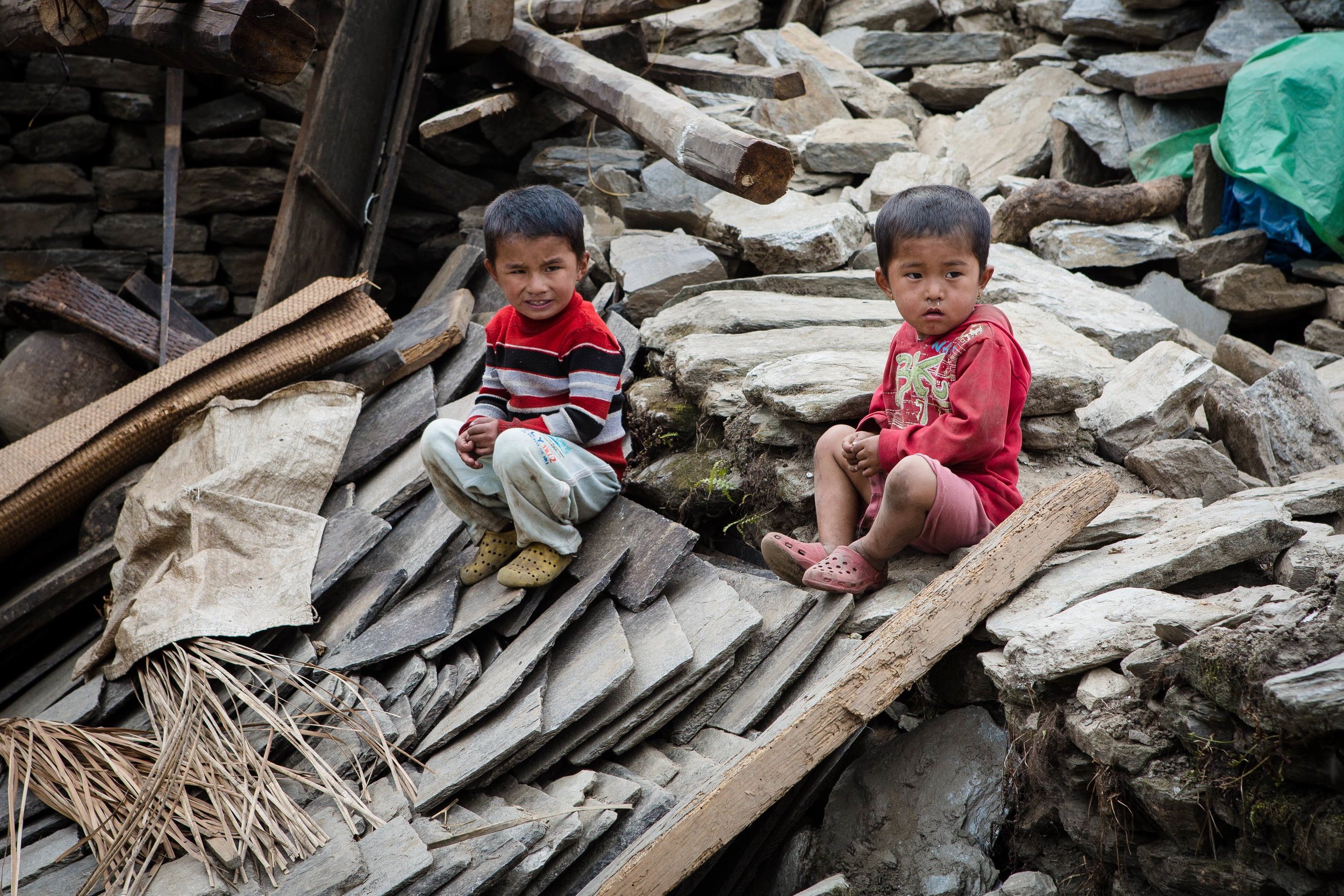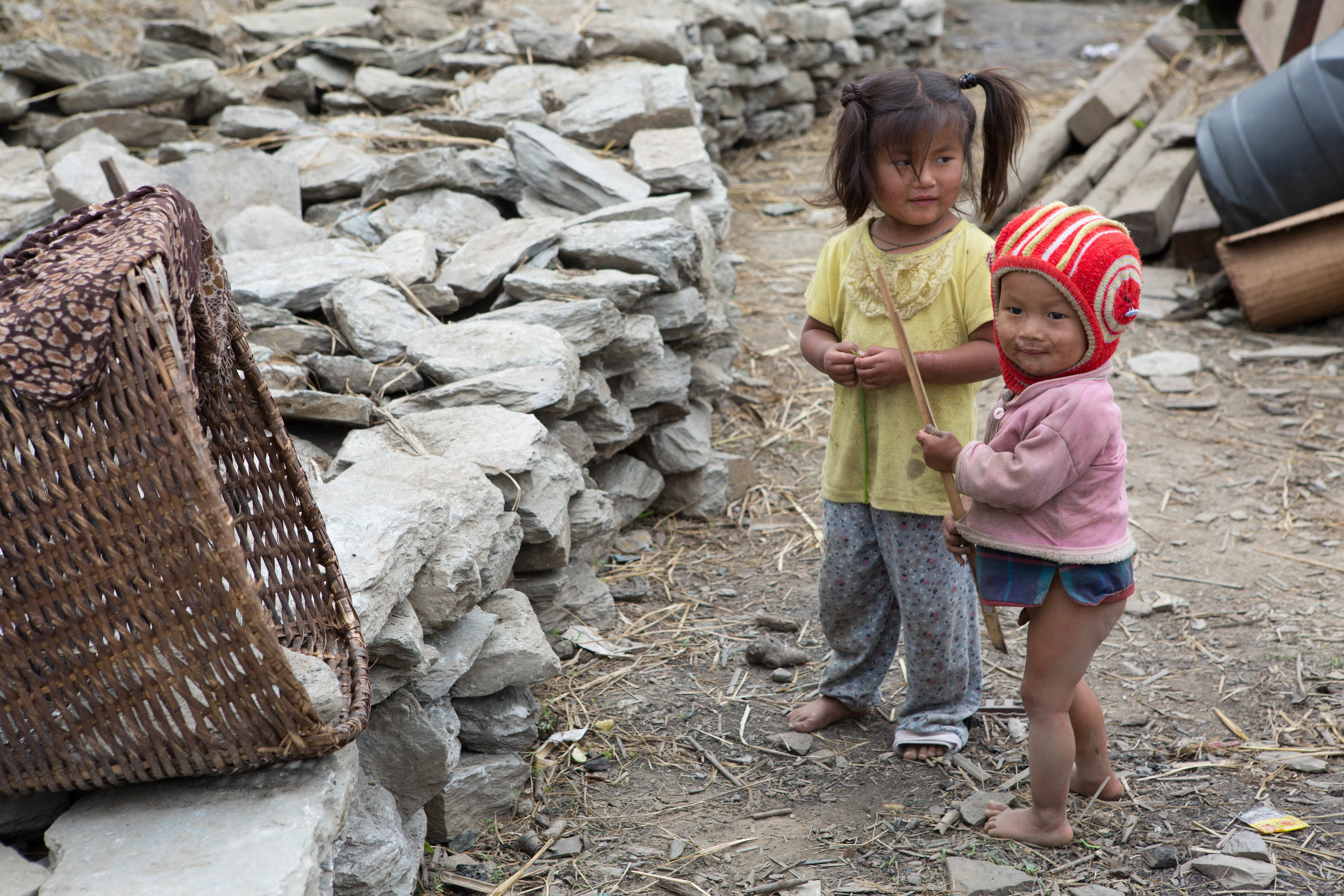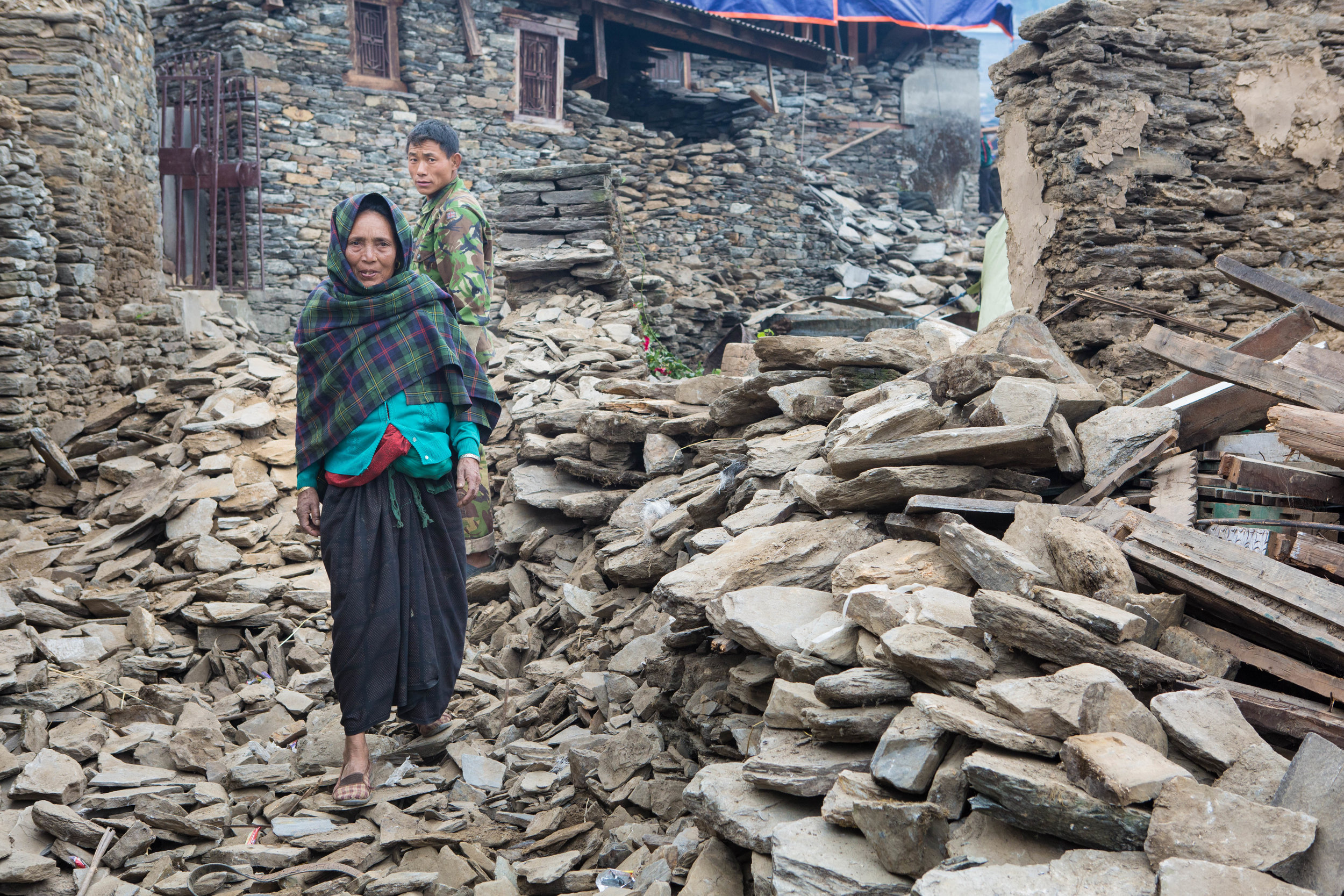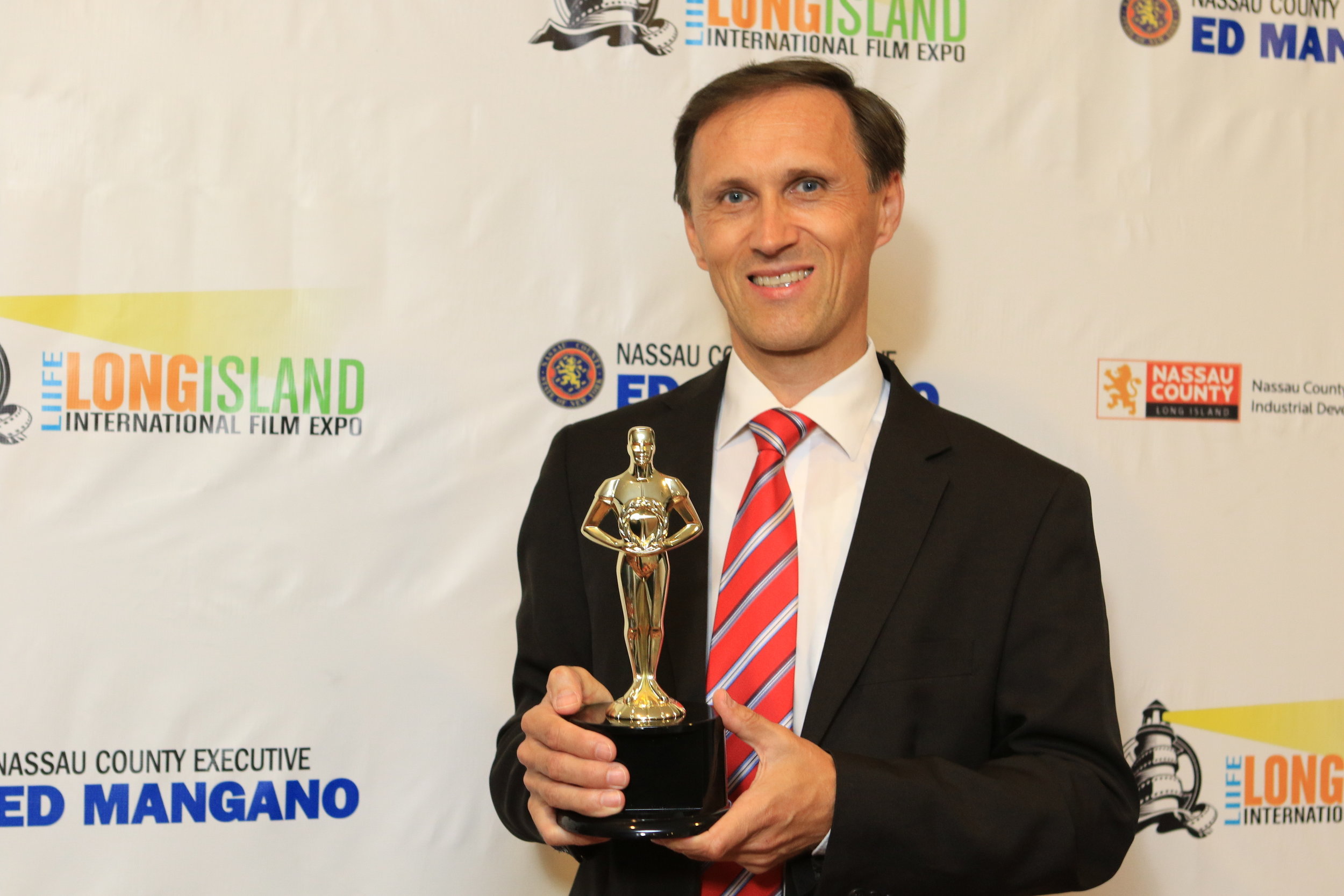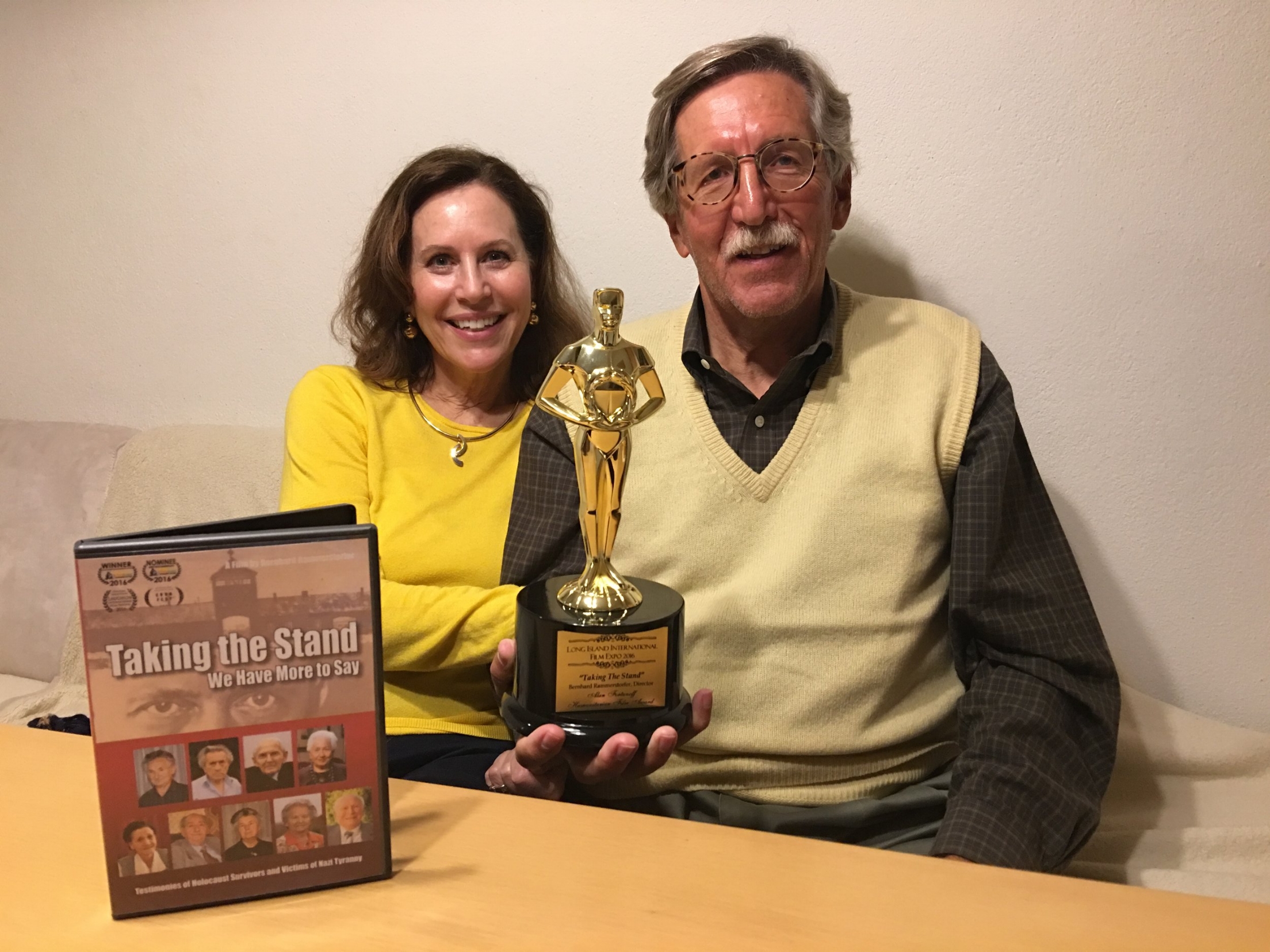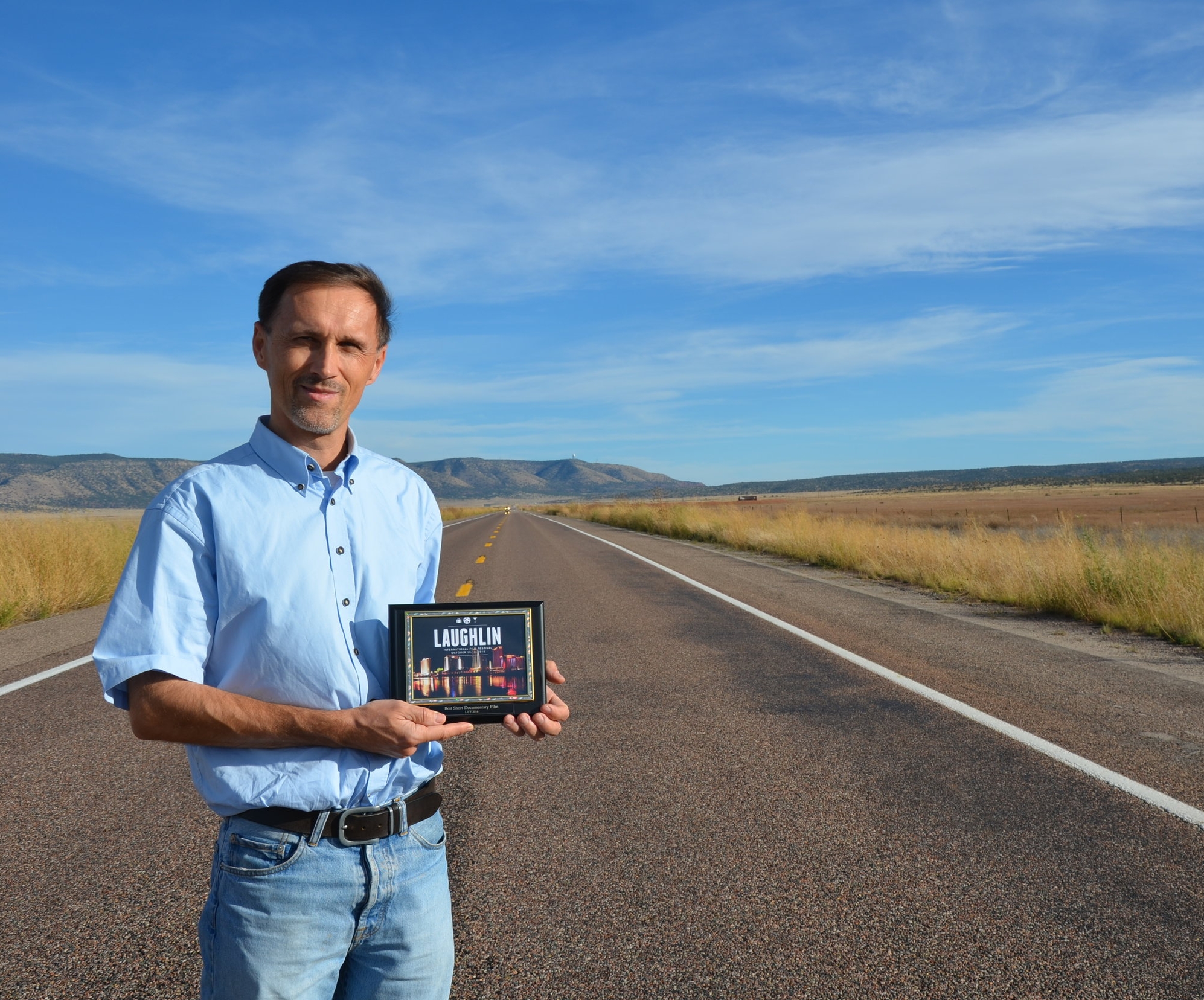Genocide Survivors Reunited After 16 Years Speak of Terror and Hope
The “A Chronicle of Hope—Revisiting the Genocide Against the Tutsi in Rwanda” event in Atlanta



If the men with machetes had had their way, Tharcisse Seminega and Charles Rutaganira would be long gone. Instead, 25 years after they faced almost certain death, both men are still alive. They were reunited in Atlanta this week to speak at the National Center of Civil and Human Rights on a program marking the 25th anniversary of the genocide against the Tutsi in Rwanda. The two men, who haven’t seen each other since their days together as refugees in Uganda, joined their wives in relating their stories of survival.
On April 7, 1994, an estimated 800,000 people in Rwanda perished in one of the fastest-moving genocides in modern history. The Tutsi ethnic group faced a plan for total extermination by the extremist Hutu regime. Sympathetic Hutu who opposed the slaughter or tried to save doomed Tutsi also met death. That reality made survival even more unlikely. Mr. Rutaganira recounted how soldiers led a mob of 30 Hutu to his house, telling the mob to “Finish him off.” The mob included some of his Hutu friends and neighbors. “We had no problems before,” he said. “But that day, they came with hatred in their eyes.” Armed with machetes, spears, and clubs, they slashed him all over his body and left him for dead on the street in front of his house.
In a nearby town, Angelique, Charles’ future wife, huddled in a classroom on a sprawling school campus. About a thousand Tutsi had Sled there. She recalled: “We could hear the soldiers and militiamen systematically going from room to room, killing whoever they found.”
Mr. Seminega was a professor at the National University of Rwanda (NUR) when the genocide erupted. Extremist Hutu faculty helped gather lists of Tutsi faculty marked for a cruel death. Mr. Seminega, his wife, and their five children repeatedly evaded the killers during 75 terrifying days.
The Rutaganiras and Seminegas survived only because of help from an unlikely source: Hutu rescuers who took extreme risks to save them. Most belonged to the community of Jehovah’s Witnesses, of which the survivors were a part. Because the Witness faith rejects armed conflict and violence and is apolitical, Hutu Witnesses would not participate in the genocide. This position already put them at risk of death for refusing demands to pick up weapons, man barricades, or turn in Tutsi in hiding. Actively sheltering Tutsi increased the risk of an excruciating death, often carried out in torturous stages. But, says Mr. Seminega, about 20 members of his faith community “put their lives in danger to save ours.”
The Atlanta program, “A Chronicle of Hope—Revisiting the Genocide Against the Tutsi in Rwanda,” opened with a poem entitled “My Brother’s Keeper,” written by a Rwandan teenager, Uwera Nina Ntaganzwa, in 2016. Two of Mr. Rutaganira’s children, Zephaniah and Charlene, ages 22 and 20, recited the poem. Referring to a now-grown orphan of the genocide, it reads: “He'd have to remember. Always. Not in April, but every day. He'd have to teach his children the greatest commandment. He'd have to love, and teach love for love, love conquers all.” Mr. Seminega agrees. Spiritual healing could be achieved “if people would learn love and live according to God’s principles, he said in an interview with Georgia Public Radio. “Without this spiritual healing, genocide could come again.” (https://www.gpbnews.org/post/25-years-after-rwandan-genocide-survivors-share-their-stories-atlanta)
Program Sponsors: The Arnold-Liebster Foundation and the Laura and Lorenz Reibling Family Foundation
Contact: To arrange interviews with Tharcisse Seminega and Charles Rutaganira, contact Sandra Milakovich, U.S. representative for the Arnold-Liebster Foundation, (563) 391-1819, Ext. 2.
The event has been recorded and can be watched here.
____________________________________________________________________________________
Book Release: No Greater Love - How My Family Survived the Genocide in Rwanda
Co-Sponsered by LLRFF
GENOCIDE AGAINST THE TUTSI IN RWANDA—SAVED FROM THE MACHETES
DURING 100 DAYS in Spring 1994, Rwanda’s descent into terror took an estimated 800,000 or more lives. The
fastest-moving genocide in modern times was horrifying for its intimacy: Killers and victims were neighbors,
friends, fellow churchgoers, workmates, even spouses. Murderers did their “work” with crude implements—
machetes, hoes, nail-studded clubs—and lists of those doomed to die.
Tharcisse Seminega was marked for slaughter. As a Tutsi professor at the National University of Rwanda in Butare,
Seminega, his wife, Chantal, and their five children faced certain horror. All escape routes were cut off—until help
arrived in the form of Hutu rescuers who repeatedly put themselves in mortal danger to save Seminega’s family
from the machetes.
Seminega’s new book No Greater Love: How My Family Survived the Genocide in Rwanda tells the true story of
unwavering courage and extraordinary love shown by ordinary people who offered a ray of hope during one of
humanity’s most horrific self-inflicted tragedies.
No Greater Love (GM&A Publishing; June 1, 2019; $19.95 US; French and Kinyarwanda editions forthcoming) is
both personal memoir and historical narrative. Vivid descriptions of the social and political developments in
Rwanda are authenticated by an extensive appendix of personal accounts and key historical documents translated
by the author from the original French. Seminega saw firsthand how political and religious forces transformed his
beautiful homeland into a fractured landscape, rife with hatred and violence. In heartbreaking detail, the author
describes Rwandan society’s headlong descent into mindless genocide.
ENDORSEMENTS
“A powerful and important story of harrowing terror and hatred, extraordinary kindness and courage, and true
faith and humanity.”—Glenn Mitoma, Director of the Thomas J. Dodd Research Center, University of
Connecticut.
“Stories such as these—of rescue and risk—deserve to be central to the memory of the genocide.”—Scott Straus,
Associate Professor of Political Science and International Studies at the University of Wisconsin—Madison,
and author of The Order of Genocide: Race, Power, and War in Rwanda
ABOUT THE AUTHOR
Dr. Tharcisse Seminega was born in Kabirizi, Rwanda, in 1941 to a devout Catholic family. He grew to
adolescence during the turbulent transition from Belgian colonial rule to independence. Seminega studied for the
priesthood but later pursued his Ph.D. in biotechnology, becoming a lecturer in 1977 at the National University of
Rwanda in Butare. It was in Butare and vicinity that Seminega and his entire family lived through the Rwandan
genocide. His own bitter experience with politicized religion eventually led him to abandon his life’s desire to
become a priest. He later felt drawn to the faith of Jehovah’s Witnesses and their strictly apolitical, nonviolent ethic.
In 2003, Tharcisse and Chantal moved to Canada with four of their five children.
CONTACT
Publicity liaison: Sandra Milakovich (563) 391-1819, ext. 2
For interviews, please contact Dr. Seminega directly at tseminega13@gmail.com Telephone: (819) 500-2914 (cell)
or (819) 777-8966 (home)
REVIEW COPIES
Please e-mail requests for review copies, including contact and mailing information for the recipient. This book
was published with generous grants from the Arnold-Liebster Foundation and the Laura and Lorenz Reibling
Family Foundation.
More Info at: rwanda-nogreaterlove.com
____________________________________________________________________________________________________
LLRFF is supporting Karma Flights' Winter Clothing Drive in Nepal
Winter/Spring 2018
A sweet Thank You from Nepal
The Laura and Lorenz Reibling Family Foundation is supporting KarmaFlights' 2018 Winter Clothing Drive for Nepal. The organization is again helping kids in Nepal to stay warm and healthy during the winter. Many impoverished families have to face their third winter living in temporary shelters; lacking funds to rebuild their homes post-earthquake. Particularly at risk are the very young and very old.
KarmaFlights is collecting winter clothing and accepts donations to buy new warm children's clothing. They will cover 14 schools in the Himalayan Manaslu region. Please consider donating.
For more information please click here.
Winter Clothing Drive 2017:
Spring Symposium "Japanese American Exclusion" Draws Students and Visitors
to Boston College
April 20, 2017
The bi-annual symposium held in connection to Prof. Reibling's Holocaust courses at Boston College turned out to be an important historical lesson about not only the Japanese American Exclusion and Resettlement in the USA, but also the persecution of Jehovah's Witnesses in Japan during WWII. The patterns discovered during the speakers keynotes made clear: Although the magnitude of devastation of the Holocaust in Germany encompassed and the effects on the lives of Jews and JW's were different - the underlying principles of racism and nationalism, riding along with intolerance and bigotry, were very similar around the world and deserve more research. Prof. Glenn Mitoma, Prof. John Michalczyk and Prof. Lorenz Reibling's historical explanations were met by impressive questions of the auditorium and contributed to a successful evening at Devlin Hall.
Prof. John Michalczyk, Prof. Lorenz Reibling and Prof. Glenn Mitoma at the Symposium
European Commission Publishes Guides on Patient Blood Management
April 2017
The European Commission has published two guides on Patient Blood Management (PBM).
PBM is a patient-focused, evidence-based and systematic approach to improve patient outcomes through the safe and rational use of blood and blood products and avoiding unnecessary transfusions.
The PBM approach has been endorsed and promoted by the World Health Organization and is widely accepted as current best practice.
The Laura and Lorenz Reibling Family Foundation is an active supporter of PBM research and welcomes the publication of the guides, hoping they will support the efforts of health authorities in the EU and improve the treatment of many patients in the future.
For more information please click here
Research supported by LLRFF - please click here
LADDER in the LIONS' DEN Reaches India: Official Selection at GardenCity International Film Festival
Building on numerous awards in the USA, Europa and Russia, the documentary about 107-year-old Nazi concentration camp survivor Leopold Engleitner has now received recognition in India as well.
Among 500 film submissions from nearly 50 countries "LADDDER in the LIONS' DEN" received an "Official Selection" by India's "GardenCity International Film Festival". The festival will take place in the north-eastern part of India in the IT capital Bangalore in April.
For further information, please click here.
Lexington Symphony Concert Feat. Baris Parker's Composition "The Dreamy Dance" A Huge Success
A night to remember for a long time: Lorenz and Laura Reibling had the pleasure to attend The Lexington Symphony concert "Discover new Worlds" alongside the German Consul General Dr. Ralf Horlemann and his lovely wife, many friends and the composer Baris Perker with his parents (that flew in from Turkey) this past Saturday night at Lexington’s newly renovated Cary Concert Hall.
The event, was attended by over 400 guests (undeterred by a late NE snow-event) and met with standing ovations. Sponsored by the Laura and Lorenz Reibling Family Foundation, Discover New Worlds featured music by composers Jean Sibelius, Baris Perker and Antonin Dvorak.
Baris, a close friend of the Reibling family, was raised in Istanbul, Turkey. His music is evocative and picturesque. He began his piano studies at the age of 8, going on to win many awards in his career. He received degrees in both piano and composition at Peabody conservatory. He has since earned his master’s and Doctor of Musical Arts degrees and now resides in Cambridge, MA.
Click here to learn more about Baris Perker’s music.
Winter Jacket Distribution in Nepal a Big Success - Thank you from KarmaFlights
Winter Clothing Drive
KarmaFlights is helping kids in Nepal to stay warm and healthy during the winter.
The situation is particularly desperate this year. Many impoverished families have to face their second winter living in temporary shelters; lacking funds to rebuild their homes post-earthquake. Particularly at risk are the very young and very old.
KarmaFlights is collecting winter clothing and accepts donations to buy new warm children's clothing. Please consider donating.
Bernhard Rammerstorfer about becoming a Filmmaker, telling the World about Holocaust Survivors
Nachrichten.at tells the story of how Bernhard Rammerstorfer became a holocaust filmmaker by meeting Leopold Engleitner, a holocaust survivor whose life story later reached millions with the award winning documentaries "Ladder in the Lion's Den" and "Taking The Stand".
Nachrichten.at: Er erzaehlt Millionen weltweit das Leben eines Vergessenen
Holocaust Documentary "Taking the Stand" Garners Awards in New York and Nevada
July/October 2016 - The Long Island International Film Expo 2016 has awarded the Alan Fortunoff Humanitarian Film Award to Austrian filmmaker and author Bernhard Rammerstorfer and his Holocaust documentary Taking The Stand.
The New York film festival, rated as one of the Top 25 Coolest Film Festivals in the World by MovieMaker Magazine, honored the documentary with another nomination in the category “Best Documentary".
In addition, the film won Best Short Documentary Film Award at the Laughlin International Film Festival 2016 in Nevada.
Laura and Lorenz Reibling, supporters of the project and hosts of the Boston Symposium “Taking the Stand: We Have More to Say” in October 2015 at Boston College, congratulate the filmmaker. “His project tells the story of Holocaust witnesses and their experience in a very personal way. A unique and wonderful project and a talented filmmaker who truly deserves this outstanding recognition.”
About the Documentary
In concert with an unusual panel of victims of Nazi tyranny, author and producer Bernhard Rammerstorfer rekindles the memories that illuminate powerful gem-stories of Holocaust survivors in "TAKING THE STAND. Shedding light on the ability of the human spirit to survive, recover and even triumph in the face of repression, aggression, loss, and every attempt to destroy it or break its will, he conducted one-on-one interviews with nine individuals with widely differing experiences, using a set of 100 questions from students all over the world.
About the Filmmaker
Beside TAKING THE STAND, Rammerstofer is the producer of the award-winning documentary LADDER in the LIONS' DEN about Leopold Engleitner, who was with 107 the world's oldest known male Nazi concentration camp survivor, which received 15 awards and honors in the US and internationally.
His meticulous pursuit of historical accuracy has earned the respect of fellow researchers and historians. With several film festival awards, and the acclaim of more than 2,000 news articles, online media, TV and radio stations around the globe, the public has rendered homage to his relentlessly passionate drive to be the calm, ordinary, yet powerful voice of those of underserved persecution.
For further information please visit www.TakingTheStand.net and www.facebook.com/bernhard.rammerstorfer







